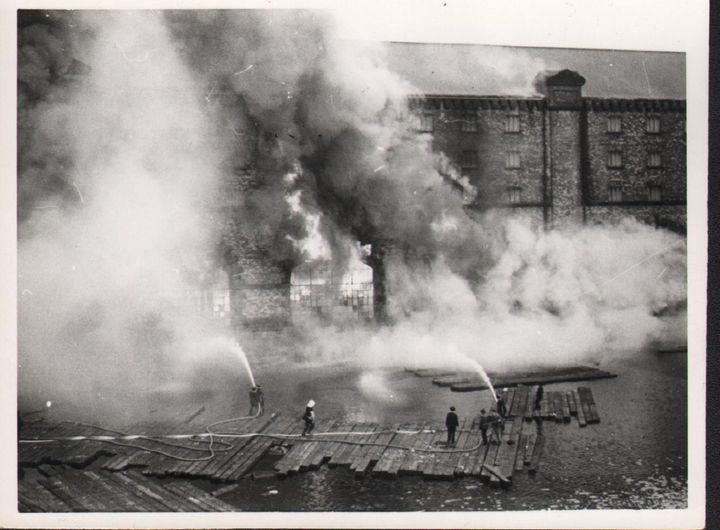Performance Appraisal is About Self Definition

Shawn Murphy, CEO and founder of Switch and Shift ('the human side of business') wrote an article for Inc where he explored the problems with the performance appraisal system: http://www.inc.com/shawn-murphy/killing-the-annual-performance-appraisal.html. It's a good read and, like all good reads, got me thinking. So here is what I came up with.
Each advance invalidates the previous to some degree. We live in a world of partly obsolescent ideas, continuously degrading in value and being replaced. Time runs at different paces. Digital-era people are evolving faster than their industrial-era organisations. This creates discontinuities. Performance appraisal is one such discontinuity. The greater the difference in evolution, the greater the discontinuity. Performance appraisal is a now antiquated response to an important problem: the importance of feedback for self-correcting behaviour.
We are in an age when the management tools, techniques and practices of the industrial era constrain us. Our response is often to criticize these ideas from the previous age. A more effective use for our criticism would be for those who continue to apply these tools and techniques when they know that better ones are at hand. The problem here is that we live in liminal times: http://www.druckerforum.org/blog/?p=766.
This means we can’t be sure of what ‘better’ is. Take the great Zappos experiment for instance. What seemed like a good idea at the time, seems less than wise now… but may still prove to be the best decision. The techniques of the past are proven to be effective in a particular domain. These domains are shrinking, but nevertheless still remain.
This is why it is rational for organizations to continue to use performance appraisal: there is no clear sustainable and responsible alternative. What this comes down to is the appetite for organizations to experiment with the ways and means of providing people with the feedback they need to adjust what they are doing. Some organizations have performance appraisal systems baked in and cannot conceive of a way to unravel it all. Progressive managers will still use this system because this is all they have. Which is to say, this is all the organisation knows.
What we see here is an organisation that is struggling to reinvent itself. The performance appraisal system was installed by the organisation, therefore the organization can remove it. Such a thing is easily achieved. We just stop using it. But then what? What do we do now? This is the point where managers start earning their salary. Because our task is organise the present for future success. The performance appraisal system has been broken for a very long time: we've just chosen not to accept the consequences of recognising it.
People will adjust their own professional behaviour if they have a sufficient stake in what they are doing, if self-adjustment is permitted in the implicit power structure and if they have good feedback information.
Having a sufficient stake goes to the heart of the crisis of the modern manager: too many organisations have lost touch with their purpose. If the organization doesn’t know what it stands for, how can we expect knowledge workers to meaningfully contribute? Or more to the point, how can we keep the ones who do know from going elsewhere? Knowledge workers are mobile and will keep moving until they find a place that resonates with what they are seeking to achieve.
So having a broken performance appraisal system or a working one is not the key issue for an organisation that has lost its way. I remember a prominent company trumpeting it’s pride at having got rid of performance appraisal. I also remember talking with a mid-level leader in the company that said that performance appraisal was the only time people ever spent time with their managers. Which is the greater sin?
Self-adjustment is not as widespread as it could be. A topic that comes up whenever we criticize the techniques of the past is hierarchy. We forget that without it, certain important activities will not be effectively achieved. For instance, the most effective aid to disaster areas will come from the military: a very hierarchical organization.
When I hear ‘burn the hierarch’, I translate ‘burn that particular brand of self-interested managerialism that supports the implicit power structure here’. I prefer the term managerialism because it helps us see the problem: a self-reinforcing clique structure centred around a few privileged individuals. The places these individuals take up are filled either by competition or appointment but the result is the same.
This is where we see the problems of overly controlling behaviour in organizations. In some situations, we like control. We like the pilot of the aeroplane we’re flying in to have control, we like the police lined up in front of the crowd to have control, we like the frustrated driver trying to pass in busy traffic to have control. In other situations, we don’t like control. This particular control is that of the authority figure who misuses that authority. Self-adjustment by knowledge workers won’t be tolerated much in an organization with a culture of managerialism based around misuse of authority.
By the way, authority quickly goes to the head, so we shouldn't assume that we'd do better. We’re tribal animals and much of our social instincts urge us towards obtaining authority over others and from there it can go bad quickly. Just read Lord of the Flies: http://www.sparknotes.com/lit/flies/.
Assuming that we have an organisation that understands its purpose and a management culture that encourages self-adjustment, we can still stifle effective learning by using a bad ‘official’ feedback system. This goes to the heart of the problem with of the clash between digital-era people working in industrial-era organisations.
The logic is fairly simple. Because the modern economy is becoming populated by knowledge workers, and knowledge workers are specialists, and the work of specialists is by definition specialized, then it is only knowledge workers who can design an effective feedback mechanism for their work. This contrasts with industrial-era feedback mechanisms which used simple measures to unify and direct the energy of mass production organisation. By contrast, today’s organisation is artisanal and filled with craftspeople.
An effective feedback mechanism is more than just a way to stay on track. It is the means by which the knowledge worker defines their world, describes who they are and directs their energy to that particular part of the future that only they can see. Designing one’s own feedback mechanism is an issue of professional sovereignty and this is at the heart of the outrage against the performance appraisal system of the mass production organisation. It’s about the fundamental impulse of people to speak in their own voice about what is important to them. This is what organisations in a liminal state are confronting.
I suggest that if senior leaders turned off their performance appraisal systems without giving thought to how best provide individual professionals with the means to express themselves, then people will look back at the performance appraisal system and admit that at least it gave them some sort of voice.
What’s important to recognise here is that the industrial-era management philosophy, techniques and practices were initiated by people who wished to make things better. We forget at times that, on the whole, we improve the lot of society as we make these significant generational advances. This is why I advise not getting carried away with inflated stories of the ills of the industrial-era thinkers and practitioners.
Focus instead on the organisations that recognise the performance appraisal system is broken and who also are concerned about ensuring what follows is sustainable, continues to focus people’s energy to producing positive social impact and are interested in making the knowledge workers temporarily in their organisation prosper.



